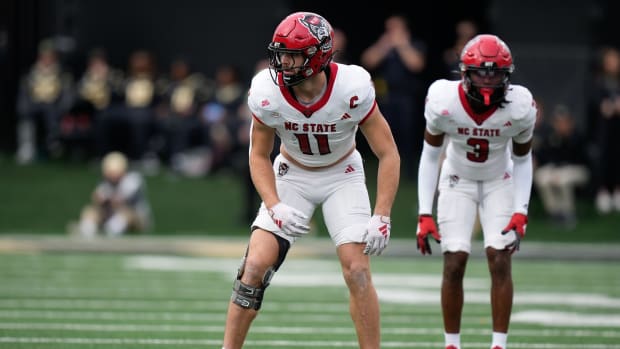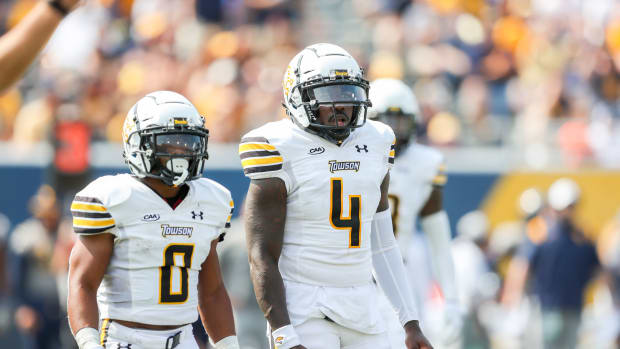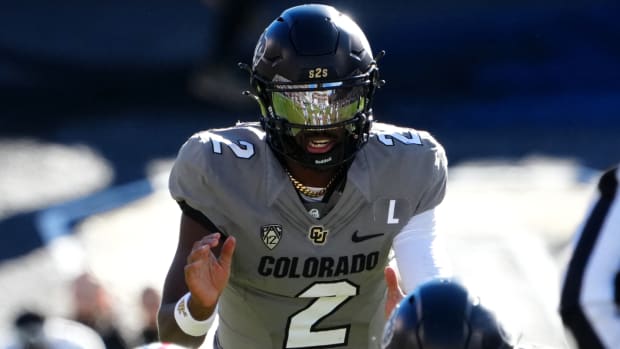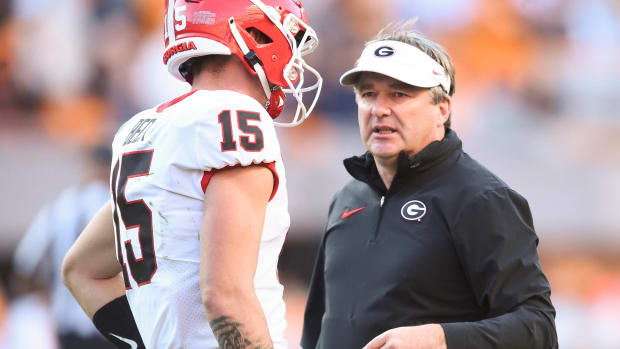Swofford: 'We Knew There Would Be Some Challenges'
As member schools -- including NC State -- shift from in-person instruction to online only classes and rival conferences shut down their fall sports seasons, ACC commissioner John Swofford appeared on the ACC Network's Packer and Durham show Friday to address a number of subjects related to league's response to the coronavirus pandemic.
Here's what he had to say:
On the challenge of containing the virus once the general student bodies began returning to campus
"I think all of us involved, looking ahead, knew that this period of time as the students come back and campuses reopen, there would be some challenges in terms of managing what needs to be managed as it relates to reopening our universities. And ultimately, hopefully, our athletic programs and the competition that comes with that. Nothing terribly surprising in that regard (has happened).
"There are more of our students coming onto campus this week, next week. But we knew these first couple of weeks would be challenging in a lot of different ways. That's proving to be true. But at the same time, in terms of the management of our athletic programs and the containment of the virus within those programs and the testing that is going on, it continues to go well."
On the difference in the way the Big Ten and Pac-12, which have canceled their football seasons, interpreted the same medical data as the ACC, SEC and Big 12, which are all still planning to play?
"Because there's a certain lack of consistency as to what we hear from the medical profession, and the fact that goes with that is that there are unknowns certainly for the layman but also for those in the medical profession. But I think the other thing that goes with it shows that the medical people can look at the same information and interpret it differently and feel differently about their ability to mitigate it in terms of playing sports and doing it safely.
"That's a real part of the challenge. We've been extremely pleased with our medical group that was put together months ago with representatives from each of the 15 institutions as well as the doctors from outside that they have brought in as consultants in giving advice to our presidents, to our athletic directors. Dr. Cameron Wolfe at Duke has been tremendous in chairing that group."
"The whole effort, really, is aimed at answering the question 'Can we play safetly?' And can we mitigate the virus in a way that keeps our student-athletes and others around the program and involved with the competition safe? And therefore is it appropriate to go forward?
"So far our board in the ACC, which is our presidents, continue to believe that is the case. That's why we have consistently stayed with the process we've had for the last five months and consistently stayed, so far, with the idea that we can mitigate it and play safely and that is the best thing for our student-athletes.
"Every week is different and the students coming back to our campus changes that environment, and hopefully that can be managed in an appropriate way that continues to for us to have the answers we've had the last few weeks in terms of going ahead with play. But every day is a new day and every week is a new week. So far we have stayed on that same path, as has the SEC and Big 12."
On the importance of the ACC moving forward with a fall season in Olympic sports, even though the NCAA has already canceled its championships in those sports
"It's still important. We need some definitive answers from the NCAA that helps us in that regard. (Thursday) coming out of the NCAA Council, I think we started seeing some of that information.
"I think we're going to end up with a situation where our athletes will not use a year of eligibility this year because of the uniqueness of everything that's happening and the unknowns as to how many games may be played and when they may be played. So I think what seems to be coming from the NCAA is a positive for student-athletes and a positive for us making decisions in terms of the Olympic sports where we could go ahead and play in the fall if medically cleared, and yet play in the spring as well when the NCAA may have a national championship.
"It's unlikely that there will be Olympic national championships in the fall. There could be Atlantic Coast Conference championships and an SEC championship and a Big 12 championship and so forth. Hopefully that would not be a deterrent to our teams playing in the spring as well, if the NCAA national championship exists there and not be losing a year of eligibility as well. That clarification will be helpful for us moving forward."
You can follow us for future coverage by clicking "Follow" on the top righthand corner of the page. Also be sure to like us on Facebook & Twitter:
Facebook -- ACC Insider
Twitter -- @WolfpackMaven and Brett Friedlander at @BFriedACC





